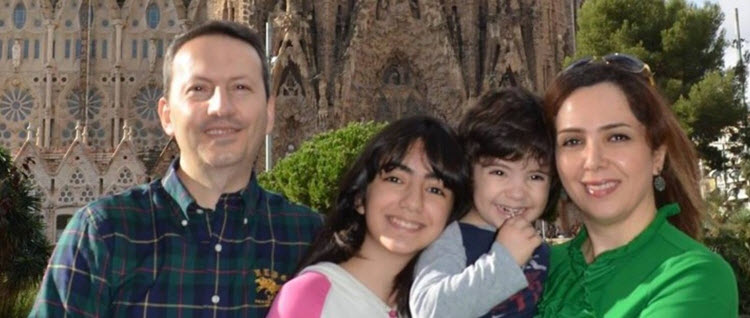
Iran Focus
London, 24 Oct – A human rights organisation is calling on the Iranian Regime to overturn the death sentence on a Swedish academic.
Amnesty International wants the death sentence against Ahmadreza Djalali, a specialist in emergency medicine, quashed immediately.
Djalali, who was born in Iran and lives in Sweden, was sentenced to death on the charge of “corruption on earth” and given a 200,000 euro fine. Corruption on earth is one of many bogus charges handed down by the Iranian Regime when they can’t find evidence of any actual crime.
Djalali denies all charges against him and said that they have been made up by the Regime’s Ministry of Intelligence interrogators.
Philip Luther, Amnesty International’s Research and Advocacy Director for the Middle East and North Africa, said: “Ahmadreza Djalali was sentenced to death after a grossly unfair trial that once again exposes not only the Iranian authorities’ steadfast commitment to use of the death penalty but their utter contempt for the rule of law.”
He continued: “No evidence has ever been presented to show that he is anything other than an academic peacefully pursuing his profession. If he has been convicted and sentenced for peacefully exercising his rights to freedom of expression, association and assembly, including through his academic work, the authorities must immediately and unconditionally release him and drop all charges against him.”
Djalali, a doctor and lecturer, has been imprisoned since April 2016. He was denied access to a lawyer for seven months and even after that every lawyer he chose was rejected by the court.
He was also held in solitary confinement for three months. While in solitary, Djalali was forced to make “confessions” by reading out statements written by his interrogators before a video camera. They tortured him and even threatened to arrest his children if he did not say that he was a spy for a “hostile government”.
Luther said: “At a time when the Iranian authorities are actively strengthening ties with countries in the European Union, it is absurd that they are using Ahmadreza Djalali’s academic links to a European country as part of the ‘evidence’ against him.”
Djalali has studied and worked in several European countries, including Sweden, Italy and Belgium, and several European officials have called for his release.
His wife Vida Mehrannia, who lives in Sweden with their two children, told Amnesty International that Djalali’s physical and mental health has sharply deteriorated since his arrest.
She said: “We are calling for his release because he has not committed any crime.”